The 1970s gave us some truly groundbreaking films that defined cinema, but like every decade, not every movie is deserving of the praise it’s received. While some of the most iconic films of the era have stood the test of time, there are others that have become somewhat overhyped. These movies may have been revolutionary for their time, but with the benefit of hindsight, it’s easy to see why they might not hold up as well as we remember.
From slow-paced dramas to questionable acting choices, some of these “classics” haven’t aged gracefully. They might have captured the attention of audiences back then, but when you rewatch them now, you may start to wonder why they’ve remained so revered. So, if you’re curious about which 70s films might not deserve their legendary status, get ready for a few surprising picks.
Love Story (1970)
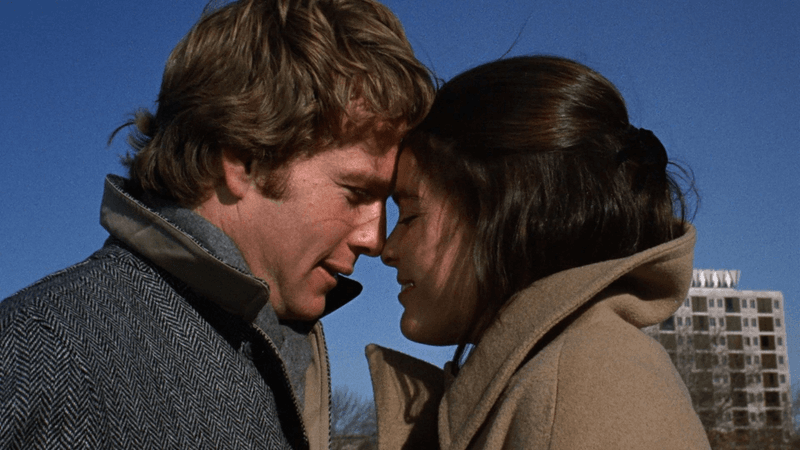
“Love Story,” released in 1970, captivated audiences with its tragic romance narrative. A wealthy Harvard student falls for a sass-talking girl from a less privileged background. The film’s famous line, “Love means never having to say you’re sorry,” became iconic.
However, some feel its melodrama overshadows the more genuine storytelling found in other films of the era. The performances, while heartfelt, sometimes come off as overly sentimental. With a premise that could have been more nuanced, “Love Story” garners a mixed response today.
For those exploring 70s cinema, it’s a bittersweet, yet somewhat simplistic, love tale.
Airport (1970)
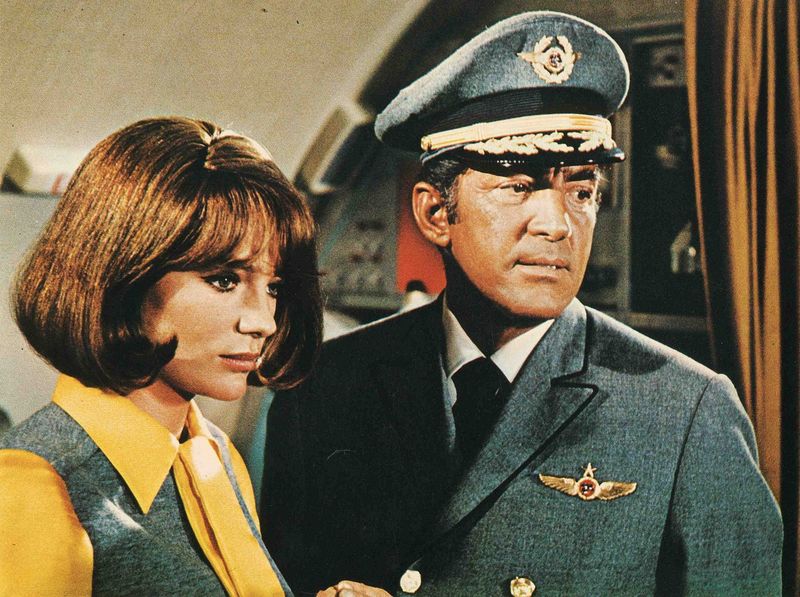
“Airport,” a disaster film from 1970, played a significant role in spawning the genre. The narrative follows an airport manager dealing with personal and professional crises, including a bomber on a plane.
Despite its thrilling premise, the film’s execution feels bloated, with subplots that distract rather than add depth. Critics argue that the characters are often one-dimensional, serving the plot rather than contributing to a richer story.
While it set the stage for future successes, “Airport” might seem overhyped by today’s standards, overshadowed by more engaging disaster films of later decades.
The Poseidon Adventure (1972)
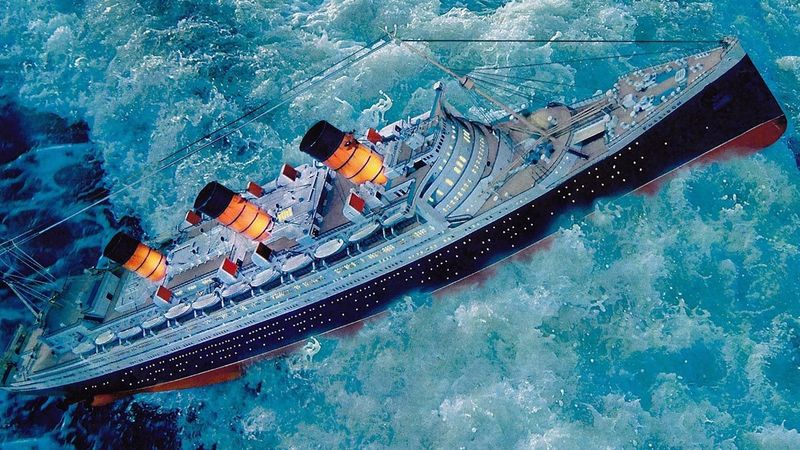
The Poseidon Adventure unleashed an epic disaster narrative, following a group of survivors on a capsized ship. Its high stakes and special effects were groundbreaking at the time.
Yet, the film’s dialogue and character development leave much to be desired. Critics note that the focus on spectacle often overshadows meaningful interactions, making the film feel shallow.
Today, its impact is acknowledged, but some viewers find the spectacle undermined by lackluster storytelling. While thrilling, “The Poseidon Adventure” might not resonate as deeply with contemporary audiences seeking substance over style.
The Towering Inferno (1974)
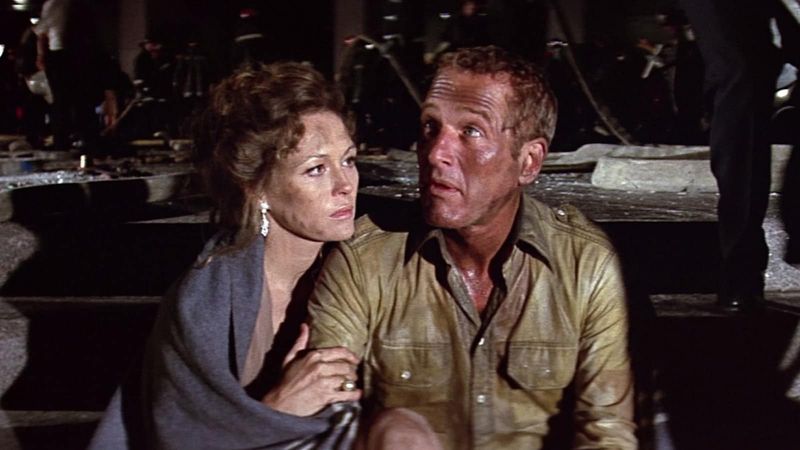
“The Towering Inferno,” a hallmark of 70s disaster films, boasted an all-star cast and impressive visual effects. The plot revolves around a fire in a skyscraper, promising heart-stopping moments.
Despite box office success, some argue that it prioritizes spectacle over substance. Character arcs often feel clichéd, with dialogue serving the plot rather than enriching it.
While the film stands as a monument of disaster cinema, those looking for depth might find it lacking. “The Towering Inferno” remains a classic example of style prevailing over storytelling depth in 70s cinema.
The Exorcist (1973)
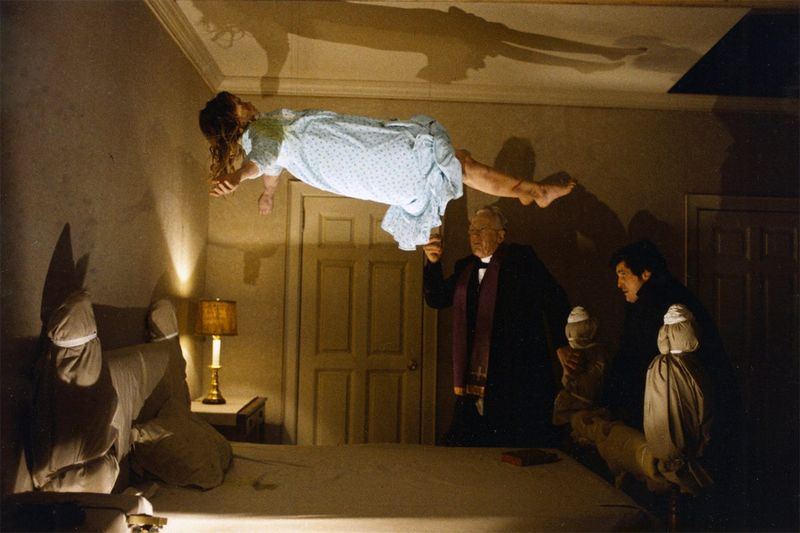
“The Exorcist,” renowned for its terrifying portrayal of demonic possession, pushed boundaries and shocked audiences upon its release. Its impact on the horror genre is undeniable, often being a benchmark for supernatural horror.
However, some modern viewers critique its pacing and effects, which may appear dated. The film’s intense reputation sometimes precedes its actual impact, leaving audiences expecting more.
While its cultural significance is acknowledged, “The Exorcist” might not fully satisfy today’s viewers in search of contemporary horror thrills. The film’s legacy remains, though its execution may feel overrated to some.
Saturday Night Fever (1977)
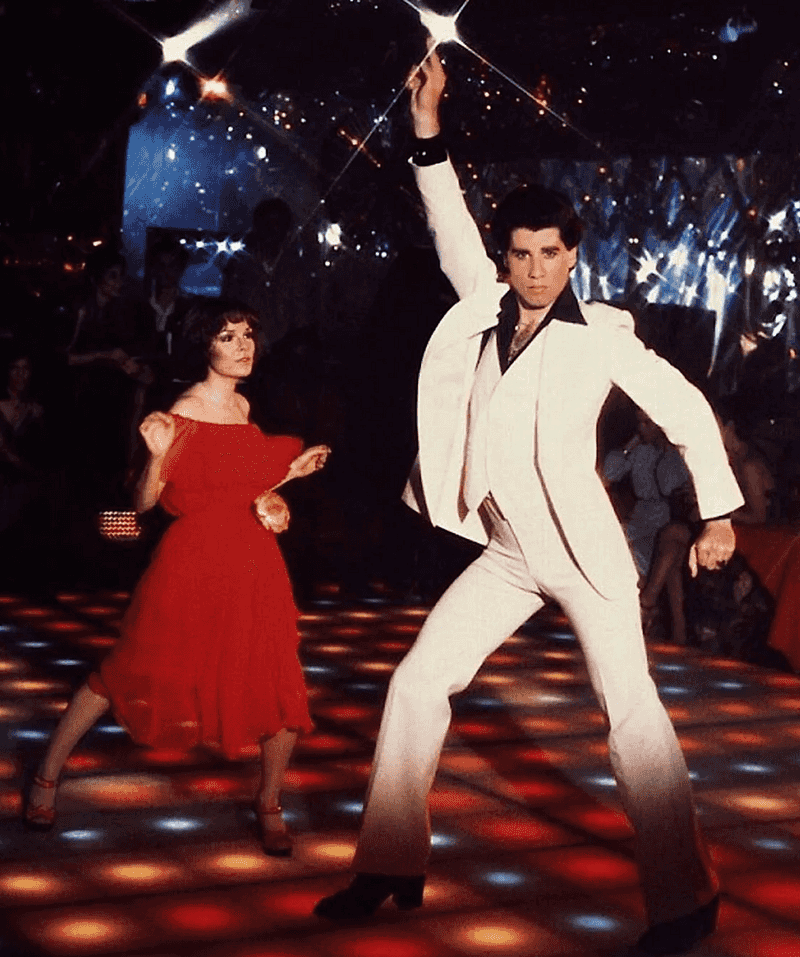
“Saturday Night Fever,” celebrated for its iconic dance scenes and soundtrack, became a cultural phenomenon. John Travolta’s portrayal of Tony Manero captivated audiences, linking disco culture to mainstream success.
However, beneath the glitzy exterior, some argue that the film’s narrative lacks depth. The character development is sometimes overshadowed by dance sequences and music.
While it encapsulates the disco era, viewers looking for substance might find it lacking. The film’s reputation rests on its style and energy, often perceived as overrated when stripped of its vibrant soundtrack and dance moves.
Grease (1978)
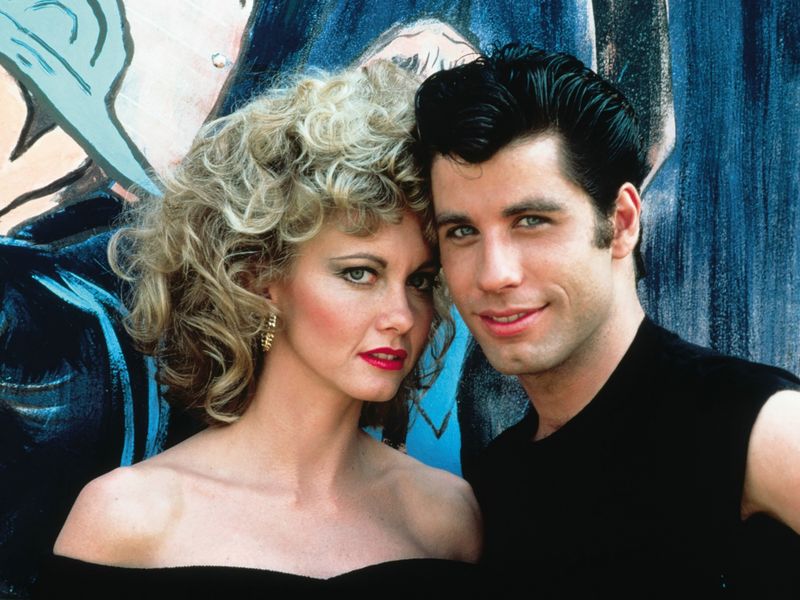
“Grease,” known for its catchy tunes and nostalgic 50s vibe, remains a beloved musical. The film’s energetic performances and memorable songs have made it a staple of pop culture.
Yet, some critique its plot as overly simplistic and its characters as archetypal. The storyline often takes a backseat to musical numbers, leaving little room for deeper exploration.
While “Grease” is adored for its charm and music, its acclaim can sometimes feel inflated. Those seeking a more profound narrative experience might find its reputation exceeds its substance. It’s a colorful yet light-hearted journey.
Jaws (1975)
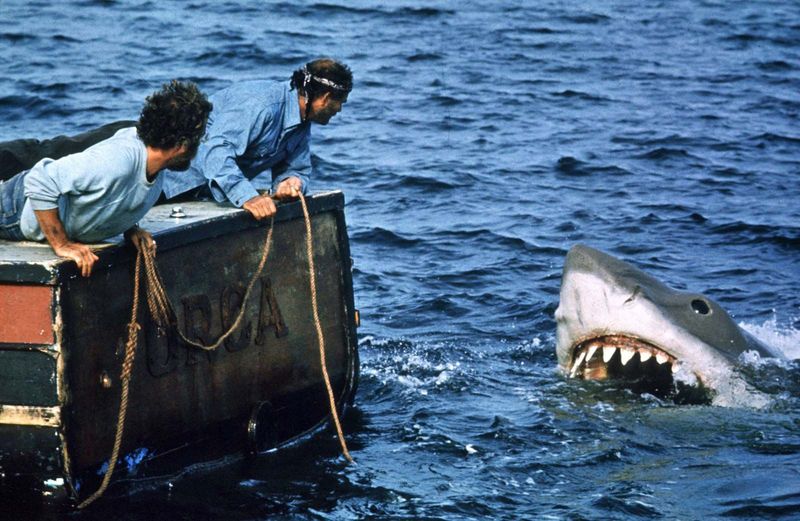
“Jaws,” Steven Spielberg’s thrilling shark tale, revolutionized the summer blockbuster concept. The suspenseful narrative and iconic score struck fear into audiences, making beachgoers wary.
However, the film’s technical limitations and pacing can feel dated. Some argue that the characters lack depth, serving more as plot devices than fully realized individuals.
While “Jaws” undeniably influenced cinema, its status as a classic might overshadow its flaws. For those revisiting the film, the blend of suspense and simpler storytelling might seem overrated compared to modern thrillers with more nuanced plots.
Rocky (1976)
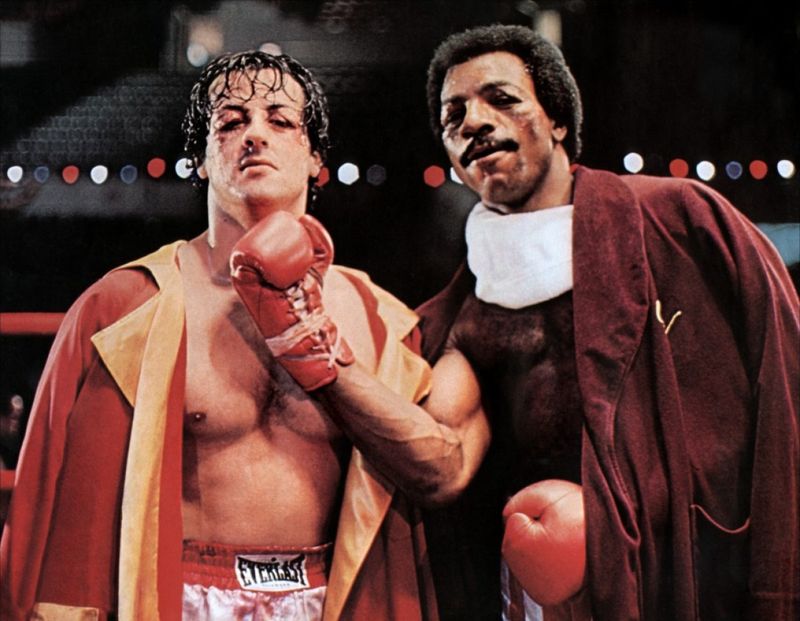
“Rocky,” the underdog story of a small-time boxer, became a symbol of perseverance and hope. Sylvester Stallone’s portrayal of Rocky Balboa inspired countless viewers, earning a place in cinema’s hall of fame.
Despite its impact, some find the film’s narrative predictable and its pacing slow by today’s standards. The dialogue and character interactions, while heartfelt, sometimes lack complexity.
Though “Rocky” remains an inspiring tale, viewers seeking fresh narratives might find it overrated. Its legacy persists, but for some, the film’s straightforward approach feels less compelling amidst contemporary storytelling innovations.
Star Wars (1977)
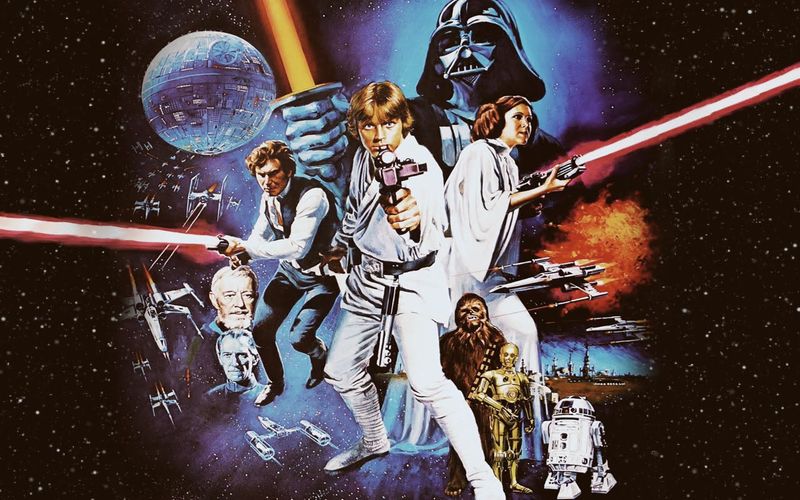
“Star Wars,” George Lucas’s epic space opera, captured imaginations with its groundbreaking effects and timeless story. It introduced audiences to a galaxy far, far away, sparking a cultural phenomenon.
Yet, modern critics note its plot simplicity and character archetypes. While its influence is indisputable, some argue that the praise it receives overlooks its narrative straightforwardness.
Although “Star Wars” remains a cherished classic, contemporary viewers might find its accolades excessive. The balance of nostalgia and critical perspective suggests that while revolutionary, its reputation may overshadow its storytelling simplicity.
Close Encounters of the Third Kind (1977)
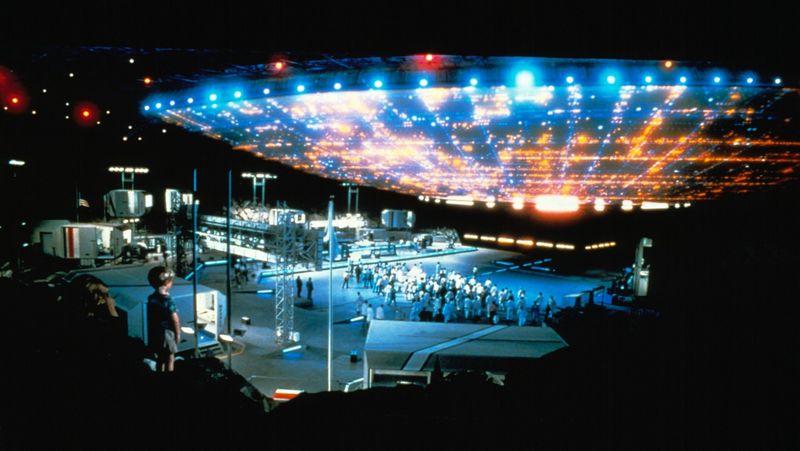
“Close Encounters of the Third Kind,” known for its depiction of human-alien contact, combined Spielberg’s visual prowess with a sense of wonder. The film’s portrayal of extraterrestrial encounters captivated audiences.
However, some find the pacing uneven, with lengthy sequences that may test modern attention spans. Critics argue the character motivations sometimes lack clarity amidst the spectacle.
While visually impressive, the film might seem overrated to those seeking a more cohesive narrative. Its legacy is undeniable, but for some, the blend of awe and storytelling falls short of perfect alignment.
A Clockwork Orange (1971)
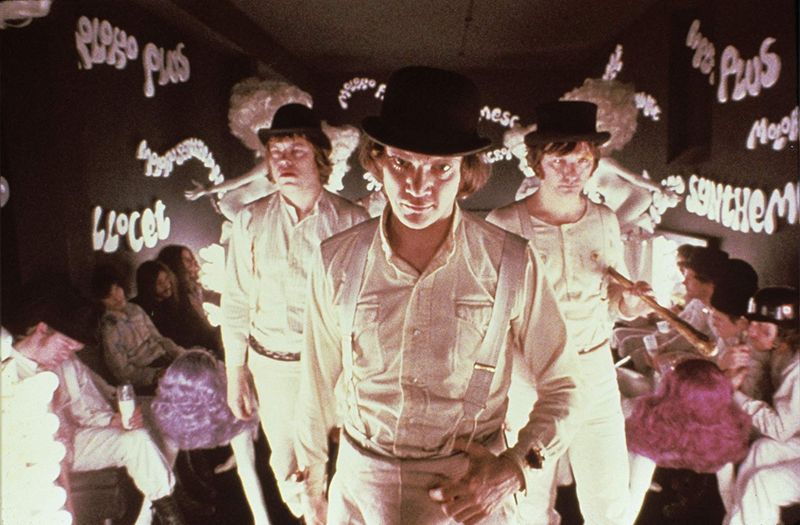
“A Clockwork Orange,” directed by Stanley Kubrick, is a provocative exploration of free will and societal control. Its striking visuals and disturbing themes left an indelible mark on audiences.
Yet, the film’s violent content and moral ambiguity spark debate. Some viewers find its narrative unsettling, overshadowing its artistic merit.
While hailed as a masterpiece, “A Clockwork Orange” might feel overrated due to its polarizing nature. For those exploring Kubrick’s work, the film’s challenging themes and stark approach might not resonate as intended, leaving some questioning its acclaimed status.
Deliverance (1972)
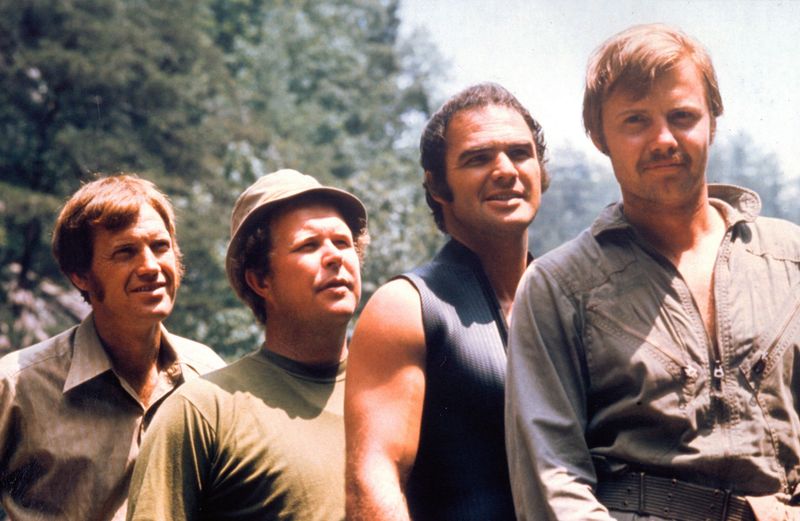
“Deliverance,” a tale of survival and primal fear, takes viewers into the untamed wilderness. The film’s tension and moral questions struck a chord with audiences.
However, some find its depiction of violence and masculinity troubling. Critics argue that the narrative’s impact is diminished by these contentious elements, sparking debate.
Though “Deliverance” commands respect for its raw portrayal of nature and human conflict, its acclaim can seem excessive to some. The film’s unsettling themes might not be as compelling to those seeking lighter or more nuanced storytelling.
American Graffiti (1973)
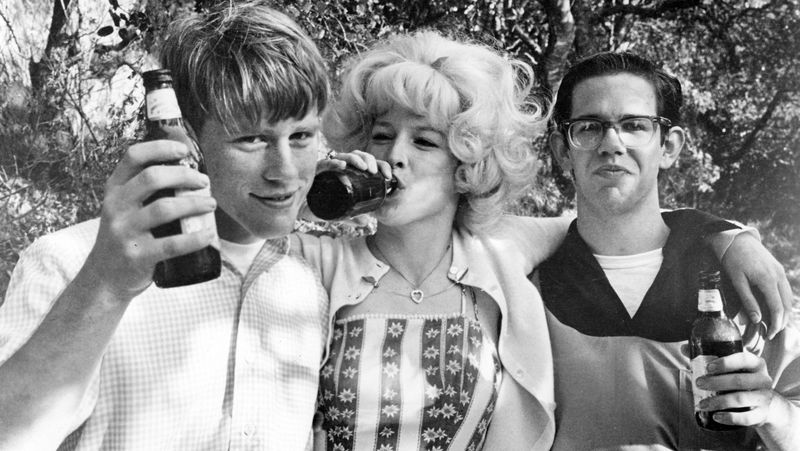
“American Graffiti,” George Lucas’s homage to early 60s youth culture, resonated with audiences for its nostalgic portrayal of adolescence. The film’s soundtrack and ensemble cast provided a snapshot of a bygone era.
Yet, some feel its episodic structure lacks depth. The narrative, while charming, sometimes meanders, with characters that can seem more like archetypes than fully developed individuals.
While “American Graffiti” captures a time and place vividly, its acclaim might seem overstated to those expecting a more cohesive storyline. The film’s charm endures, though its narrative simplicity might not satisfy all.
The Godfather (1972)
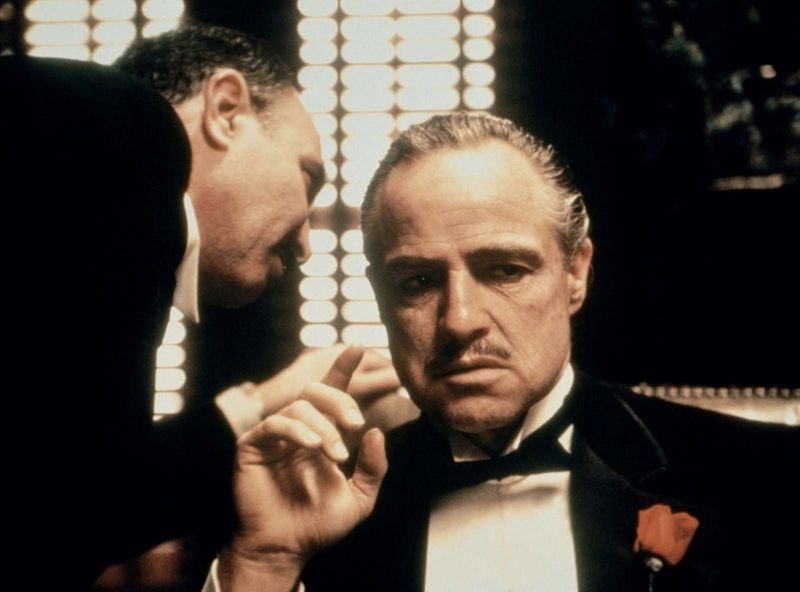
“The Godfather,” a cornerstone of cinematic excellence, portrays the intricate world of organized crime. Its storytelling and performances have become legendary.
Despite its acclaim, some argue that the film’s slow pacing and focus on crime glorification can be off-putting. The dialogue, while masterful, sometimes overshadows the narrative flow.
Though considered a masterpiece, “The Godfather” might seem overrated to audiences seeking faster-paced crime dramas. Its legacy is secure, but its reverence may exceed its appeal to those preferring modern cinematic conventions over classic storytelling.
The French Connection (1971)
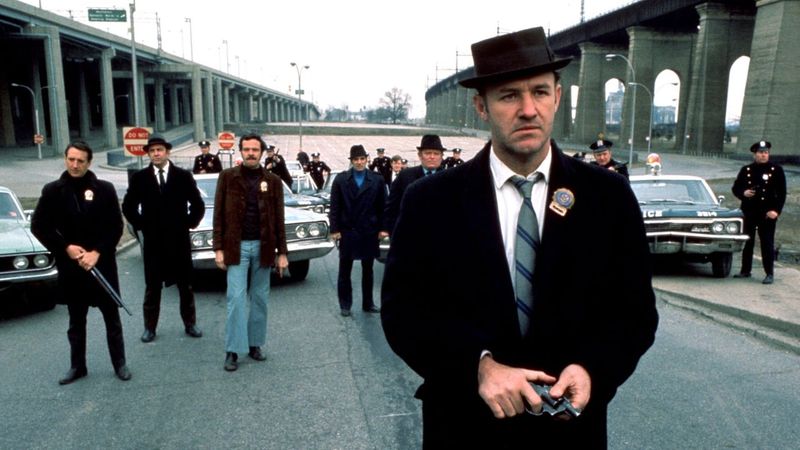
“The French Connection,” celebrated for its thrilling chase sequences and gritty realism, won five Oscars. It follows detectives on the trail of a heroin-smuggling operation.
While thrilling, some find the film’s plot convoluted and its character development lacking. The focus on action sometimes comes at the expense of deeper narrative exploration.
Though “The French Connection” set new standards for crime films, its acclaim might seem excessive to those craving more nuanced storytelling. The film’s raw energy is undeniable, yet its lasting impact may not resonate with all viewers seeking complexity.
One Flew Over the Cuckoo’s Nest (1975)
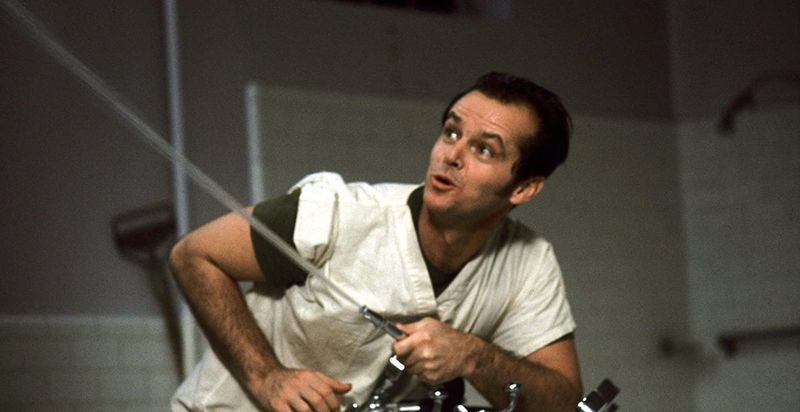
“One Flew Over the Cuckoo’s Nest,” a poignant exploration of individuality versus authority, garnered widespread acclaim. Jack Nicholson’s performance became iconic.
However, some critique its portrayal of mental health, suggesting it simplifies complex issues. The film’s narrative can appear heavy-handed, overshadowing subtler storytelling.
Though hailed as a classic, the film might seem overrated to those looking for a balanced depiction of mental health themes. While its performances are lauded, the film’s approach can feel dated in light of contemporary understandings of mental illness and institutional critique.
Apocalypse Now (1979)
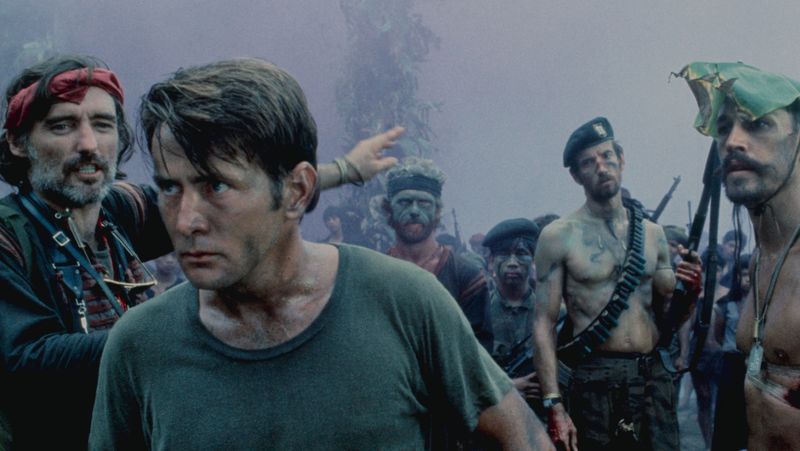
“Apocalypse Now,” a visceral portrayal of the Vietnam War, is known for its haunting visuals and philosophical depth. The film’s exploration of war’s madness earned critical acclaim.
Yet, some find its narrative disjointed, with sequences that feel more symbolic than coherent. The film’s length and contemplative style can be challenging for modern audiences.
While “Apocalypse Now” is a monumental piece of cinema, its reputation might overshadow its uneven storytelling. For those revisiting war films, its acclaim may feel overstated compared to more cohesive narratives that followed.
The Deer Hunter (1978)
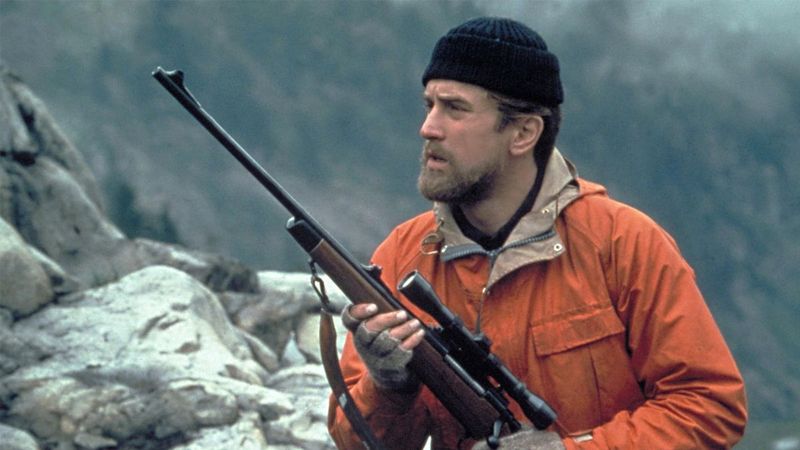
“The Deer Hunter,” exploring the Vietnam War’s impact on American life, delivered powerful performances and themes. Its depiction of camaraderie and trauma resonated deeply.
However, some critique its pacing and length, feeling the narrative could be more concise. Critics argue that the Russian roulette scenes overshadow the broader story.
Though considered a classic, the film’s acclaim may seem exaggerated to those seeking more focused storytelling. “The Deer Hunter” remains a poignant exploration, but its reputation might feel inflated given its narrative challenges and pacing.
Chinatown (1974)
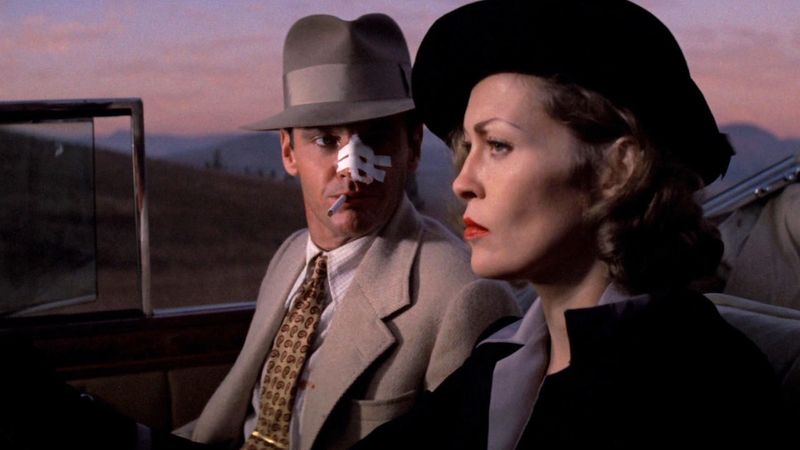
“Chinatown,” a neo-noir masterpiece, is praised for its intricate plot and atmospheric style. Jack Nicholson’s portrayal of a private detective delving into corruption struck a chord with audiences.
Yet, the film’s complexity and slow burn might not resonate with everyone. Some viewers find its acclaim daunting, questioning whether its narrative intricacies justify the praise.
While “Chinatown” is a staple of noir cinema, its reputation could overshadow the experience for those preferring more straightforward storytelling. The film’s layered narrative remains compelling, though its status as a classic might feel overstated to some.
The Sting (1973)
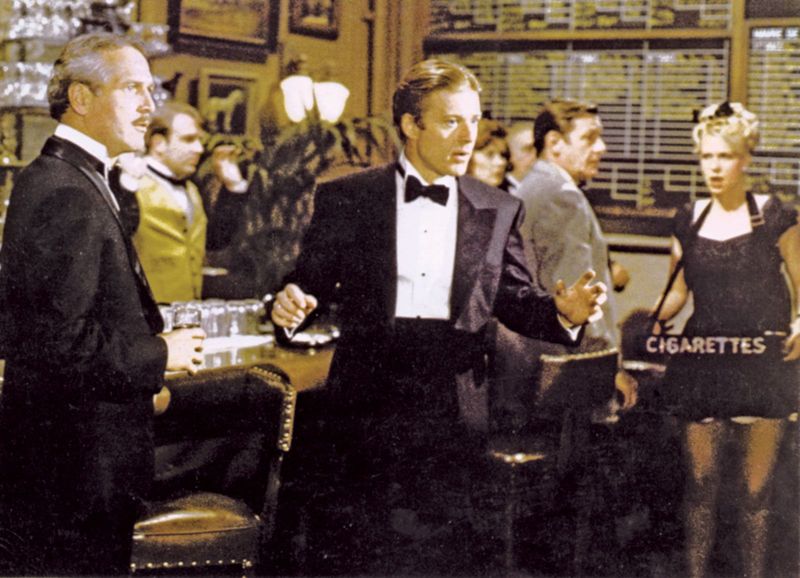
“The Sting,” featuring Robert Redford and Paul Newman, charmed audiences with its clever con artist tale. The film’s intricate plot and charismatic leads earned widespread acclaim.
However, some argue that its plot twists and turns can feel contrived. The film’s lighthearted approach may not fully satisfy those looking for depth.
While “The Sting” remains beloved for its charm and wit, its reputation might seem inflated to those expecting more than an entertaining caper. The film’s appeal endures, though its acclaim may surpass its narrative substance for some viewers.
Annie Hall (1977)
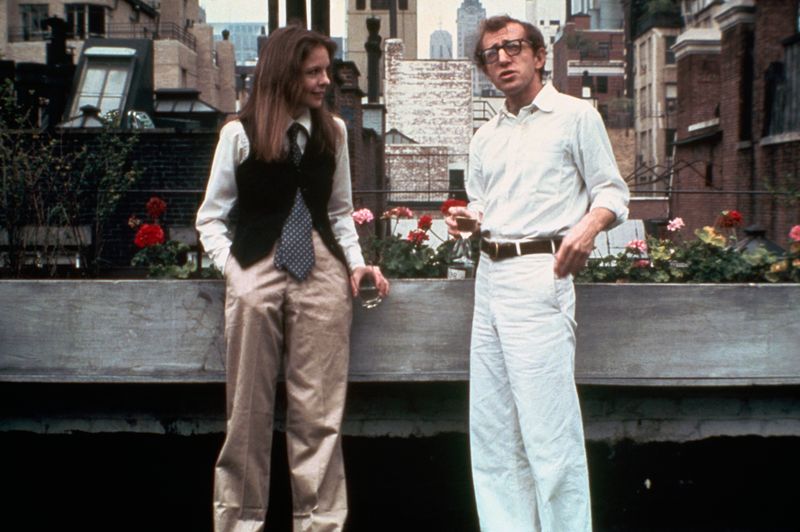
“Annie Hall,” Woody Allen’s romantic comedy, won four Academy Awards with its unique storytelling and humor. The film’s exploration of love and relationships resonated widely.
Yet, some find its self-reflective style and neurotic characters less appealing today. The narrative can seem more indulgent than insightful, with humor that might not age well for all.
While “Annie Hall” is cherished for its wit and originality, its acclaim might feel excessive to those seeking more balanced portrayals of romance. The film’s charm persists, though its legendary status might seem overstated for contemporary audiences.
The Rocky Horror Picture Show (1975)
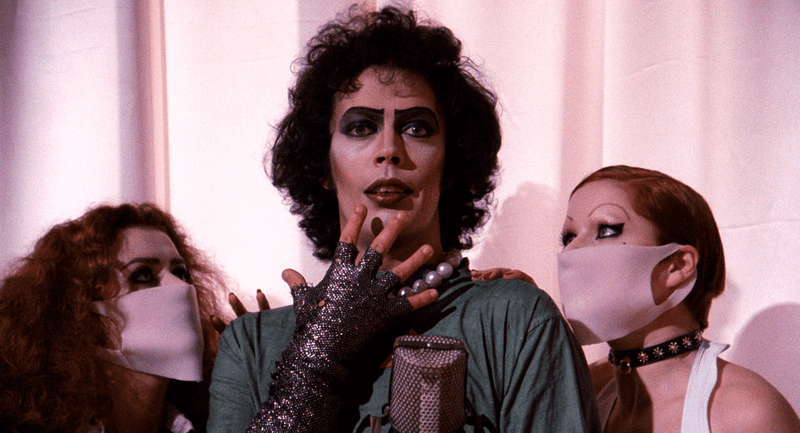
“The Rocky Horror Picture Show” became a cult phenomenon with its campy celebration of B-movie horror and rock music. Its interactive screenings brought it enduring fame.
However, some find the film’s chaotic narrative and over-the-top style perplexing. The story can appear disjointed, with moments that prioritize spectacle over substance.
While adored by its fanbase, “The Rocky Horror Picture Show” might feel overrated to those less enchanted by its flamboyant charm. The film’s cult status is secure, yet its appeal may not extend to all, especially those seeking cohesive storytelling.
Superman (1978)
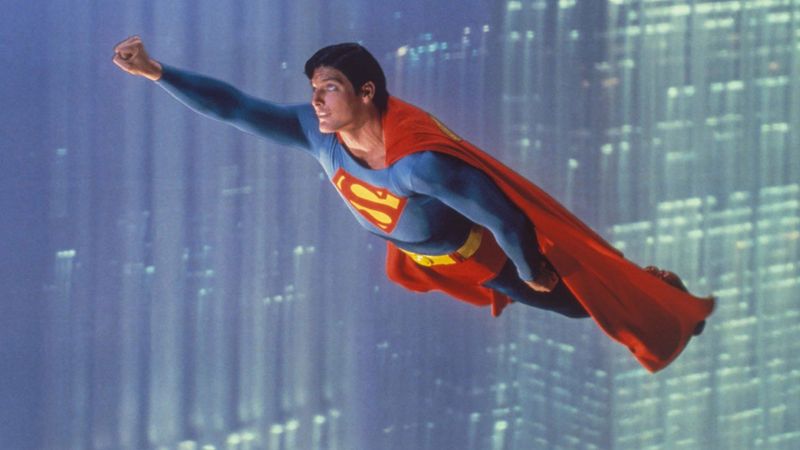
“Superman,” starring Christopher Reeve, brought the iconic comic book hero to the big screen, capturing imaginations with its blend of action and heart. The film’s special effects were groundbreaking for its time.
Yet, some find its narrative predictable, with villains that lack depth. The film’s charm remains, but its storytelling might seem simplistic compared to modern superhero films.
While “Superman” is a beloved classic, its reputation might feel inflated to those revisiting it in light of contemporary superhero narratives. The film’s pioneering spirit endures, though its acclaim may surpass its narrative depth.
